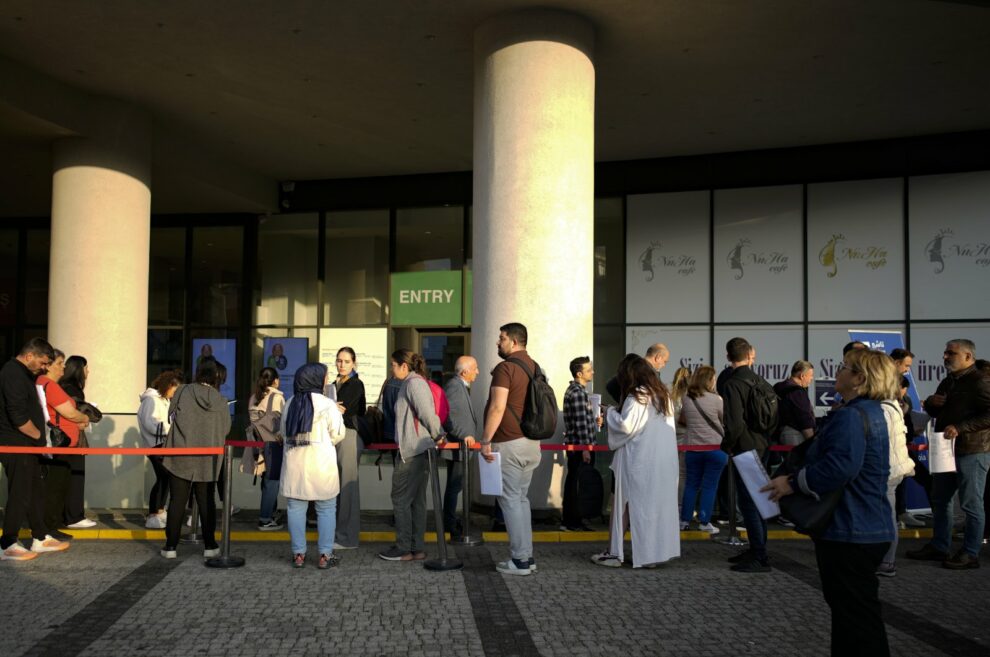Visa rejection remains a thorny issue between Türkiye and the European Union as the country’s top diplomat noted a surge in rates and explained efforts to resolve the issue
Answering questions from opposition lawmakers, Foreign Minister Hakan Fidan said that the rate of rejected visa applications submitted by Turkish citizens has increased in European Union countries. “We repeatedly conveyed our expectations for a fast solution to the problems and sent diplomatic notes as well,” Fidan said in written statements to lawmakers from the Republican People’s Party (CHP), according to the media reports.
The lengthy processing times and a significant increase in rejection rates of Turks’ applications for visas to the 27 Schengen countries have disrupted travel and business plans, and angered Ankara, which denounced it as a deliberate effort and “political blackmail.”
Türkiye has been an official candidate to join the European Union for 24 years, but accession talks have stalled in recent years over a number of disagreements and political roadblocks. Türkiye suggests it has fulfilled most of the criteria for membership.
Though the accession process stalled, Türkiye has remained a key economic and defense partner for the 27-member bloc.
Türkiye launched a “visa liberalization dialogue” with the European Union in December 2013. Fidan told lawmakers that Türkiye fulfilled 66 of 72 criteria in the visa liberalization road map and was working to fulfill the remaining criteria and for their sustainability. “We share our expectations with the EU,” he said.
Fidan said Schengen visa rejection rates were around 4% between 2014 and 2016, according to data by the EU Commission and after 2016, it started increasing every year and reached to 17% in 2021. He, however, noted a drop to 15.7% in 2022. Fidan said they invited ambassadors of several EU countries with high rejection rates to the ministry and voiced Türkiye’s demands and expectations on the issue.
The dialogue on visa liberalization aims to eliminate the requirement for Turkish citizens to obtain visas for short-term touristic, business or family-related visits (90-180 days) to all EU member states except Ireland and the Schengen countries Iceland, Liechtenstein, Switzerland and Norway.
The said dialogue, launched simultaneously with the Türkiye-EU Readmission Agreement on Dec. 16, 2013, was carried out per a road map containing criteria under five main groups.
The rules document security in terms of preparation of passports in accordance with EU standards, biometric passports, ensuring the security of passports, identity cards and other similar documents, migration management ensuring adequate control and surveillance at the borders, international protection and EU transactions related to foreigners.
They also include public order and security in terms of fighting and preventing organized crime, terrorism and corruption. In this context, harmonization with the EU acquis on the financing of terrorism, human trafficking and cybercrimes, judicial cooperation in criminal matters, protection of personal data, the protection of fundamental rights and freedoms, non-discrimination, access to travel and identity documents, and access to identity documents of refugees and stateless persons and readmission of irregular migrants were also topics on the agenda.
The six terms, namely the review of the Anti-Terror Law and the Penal Code, compliance of the Personal Data Protection Law and its institution with EU standards, making a judicial cooperation agreement with all member states, fully fulfilling the obligations arising from the readmission agreement, signing an operational cooperation agreement with EUROPOL and the approval of laws fulfilling the Council of Europe’s GRECO recommendations, have still not been met.
Since the start of the summer, Ankara and the bloc have been working to rekindle ties, which for many years operated not toward mutual trust and strategic goals but only out of necessity.
Türkiye has the most extended history with the union and the most prolonged accession process, which only officially started in 2005 despite the first agreement being signed with the EU’s predecessor the European Economic Community (EEC) in 1964. Since then, the process has been essentially frozen due to political roadblocks by certain EU members, including Greece and the Greek Cypriot administration, for reasons unrelated to membership criteria, according to Ankara.
After the presidential and parliamentary elections concluded in May, Brussels shifted its rhetoric from “the importance of cooperation with Türkiye” to “continuing relations on a strategic and forward-looking basis.”
Source: Daily Sabah















